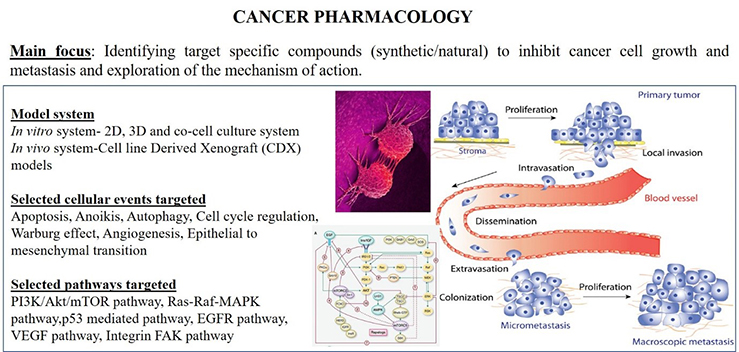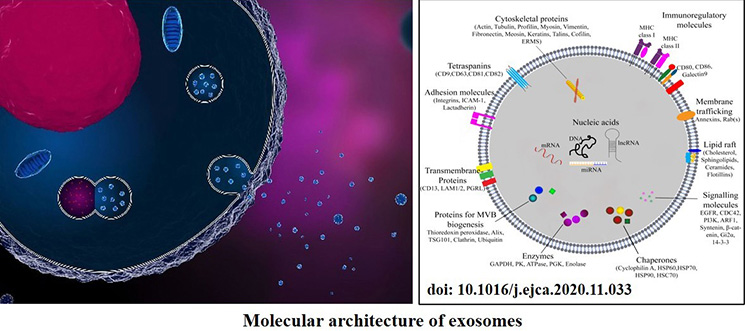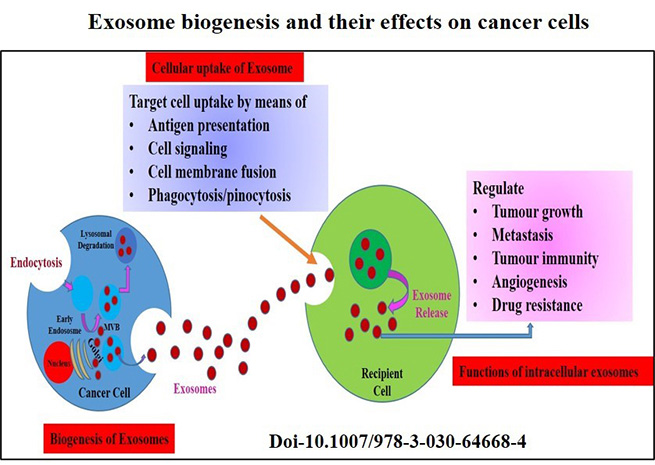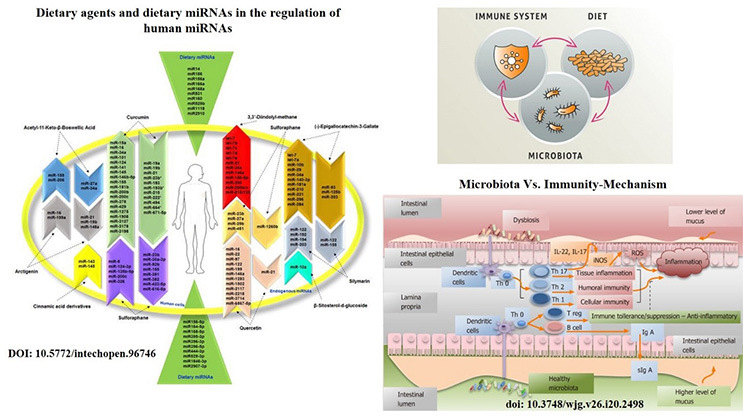Dr.Priya S.

- Dr.Priya S.
- Principal Scientist
- priyasulu@niist.res.in
- 0471-2515348
- http://niist.irins.org/profile/64959
Educational Qualifications
- BSc. Chemistry-University of Kerala-1999
- MSc. Biochemistry- University of Kerala-2001
- M.Phil. Biochemistry-University of Kerala-2003
- Ph.D. Biochemistry-University of Kerala-2008
Professional Experience
- Principal Scientist- National Institute for Interdisciplinary Science and Technology (NIIST), CSIR. 29 October 2020- till present
- Senior Scientist- National Institute for Interdisciplinary Science and Technology (NIIST), CSIR. 29 October 2016- 28 October 2020
- Scientist C- National Institute for Interdisciplinary Science and Technology (NIIST), CSIR. 29 October 2012 – 28 October 2016.
- Scientist C- Centre for Bio-Separation Technology (CBST), VIT University, Vellore, Tamil Nadu. 2009 July-2012 October.
- Postdoctoral Research- Hebrew University of Jerusalem, Israel- 2008-2009.
Areas of Research
Major Area
Cancer pharmacology, Inflammation, Exosome research, Food miRNAs, Gut microbiome and Immunomodulation
Specific Research Interests
- Cancer Pharmacology : Here we are mainly focusing on the lead molecule identification against cancer, especially breast cancer. We are screening small molecules derived from natural sources (mainly medicinal plants) or through synthetic routes against different types of breast cancer cells (ER-positive, PR- positive, HER2-positive, and triple-negative). Apart from the toxicity studies, we are into the molecular level studies like how the molecule is acting by studying various cellular processes against cancer cell proliferation like apoptosis, anoikis, angiogenesis, autophagy, epithelial to mesenchymal transition etc. by employing various cell biology, molecular biology, bioinformatics and transcriptome analysis techniques. During the in vitro studies itself we will identify the specific cellular targets and mechanism of action of the lead molecules. The identified lead molecules we are taking up to the preclinical studies as well.

- Endogenous and diet derived exosomes in health and diseases : Exosomes are lipid bilayer membrane nano vesicles with a multivesicular endosomal origin, secreted by all cell types and are found in almost all body fluids. Apart from the endogenous origin, exosome like nanovesicles (ELNs) are also reported from dietary sources. Inter-cellular communications through exosomes are important in physiological and pathological processes.

Role of endogenous exosomes in cancer management: Here we are mainly focussing on the how the endogenous exosomes derived from cancer cells vary under the treatment with different chemotherapeutic agents and how their intercellular communication affecting the cell death and further how it can be employed for developing better treatment against cancer.

Role of diet derived exosome like nanoparticles (ELNs) against inflammation, cancer and as drug delivery agents: Here we are focusing on isolation and characterization of exosome like nanoparticles (ELNs) from various dietary sources and studying their effects in managing inflammation and cancer. Apart from the whole exosomes, we are also diverted our studies in separating the molecular components of ELNs (proteins, lipids and RNAs especially miRNAs) and understanding their effects and mechanism of action in the above-mentioned processes. Also, we are using these ELNs as carriers for our secondary metabolites to target the cells and understand its efficacy in the drug delivery aspects as well.

- Food miRNAs, Gut microbiome and Immunomodulation: MicroRNAs (miRNAs) are a class of non-coding RNAs that act as post-transcriptional regulators of gene expression in diverse biological contexts. They exist as extracellular/circulating miRNAs in biological fluids and another one found in vesicles such as exosomes, microvesicles, and apoptotic bodies. Here we are working on two aspects, firstly we are studying in the presence of anti-inflammatory agents, how the miRNAs are altered with respect to the gene regulation related to immunomodulation. Secondly, we are looking into the diet derived miRNAs, especially associated with exosomes and their effects on modulating gut microbiome and immunomodulation.
- Nutrigenomic and Nutrimiromic approaches to validate immunomodulatory products: Here we are focusing on the effects of immunomodulatory products on the gene level regulation and how it modulates the miRNA synthesis which will positively affects the NLR, RLR and TLR family of receptor mediated host immune response pathways.
- Studying the integral role of dietary miRNAs on gut microbiome dynamics and immune modulation: The microbiota plays a fundamental role on the induction, training, and function of the host immune system. Diet induced gut microbiota dysbiosis promotes metabolic complications by immune dysregulation, altered energy regulation, altered hormone regulation and by induced proinflammatory mechanisms. Intestinal microbiota interacts with the immune response elements (IREs) through various T helper cell mediated mechanisms. It is already established that diet derived miRNAs can cross the gut barrier and interact with human genes and exert cross kingdom reactivity and bioactivity. In this background, we are here focussing on how food miRNAs interact with IREs through Th mediated pathways and the mechanism of food miRNAs in gut microbiome management and immune modulation

Awards/Fellowships/Honors
- Young Scientist Award from Indian Academy of Biomedical Sciences (IABS)-2019
- Results of Fast track start-up project results published in the Research highlights of SERB-2016
- DST-Fast track Start-up grant-2012.
- Postdoctoral fellowship at Dept. of Biochemistry, Hebrew University of Jerusalem, Israel in 2008.
- CSIR-UGC/NET fellowship – 2003.
- 4th Rank in MSc. Biochemistry (University of Kerala) -2001.
Patent Filed
- Pyrazole amide based compounds and uses against breast cancer thereof. Inventors: Priya S, Sasidhar BS, Raghu KG, Lakshmi S, Ashitha KT. 202111052657 dtd 16-11-2021.
Publications
- Shilpa G, Lakshmi S, Jamsheena V, Lankalapalli RS, Prakash V, Anbumani S, Priya S. Studies on the mode of action of synthetic diindolylmethane derivatives against triple negative breast cancer cells. Basic Clin Pharmacol Toxicol. 2022 Jun 24. doi: 10.1111/bcpt.13767.
- Anusha R, Priya S. Dietary exosome-like nanoparticles: An updated review on their pharmacological and drug delivery applications. Mol Nutr Food Res. 2022 May 20:e2200142. doi: 10.1002/mnfr.202200142.
- Lakshmi S, Renjitha J, Sasidhar BS and Priya S. Epoxyazadiradione induced apoptosis/anoikis in triple negative breast cancer cells MDA MB-231 by modulating diverse cellular effects. J Biochem Mol Toxicol. 2021, e22756.doi: 10.1002/jbt.22756.
- Varsha KK, Shilpa G, Priya S and Nampoothiri KM. Antimicrobial activity and cytotoxicity trait of a bioactive peptide purified from Lactococcus garvieae subsp. bovis BSN307T. Lett Appl Microbiol. 2021, 72(6):706-713. doi: 10.1111/lam.13464.
- Lakshmi S, Hughes TA and Priya S. Exosomes and exosomal RNAs in breast cancer: A status update, Eur J Cancer 2021, 144: 254-268. doi: 10.1016/j.ejca.2020.11.033
- Priya S and Satheeshkumar PK. Exosomal biomarkers in colorectal cancer. 2020, In: Colon Cancer Diagnosis and Therapy-Vol 1, Springer Nature. Page No-101-122. ISBN- 978-3-030-64668-4 Doi-10.1007/978-3-030-64668-4.
- Veena KS, Taniya MS, Jaice R, Arun Kumar T, Priya S and Ravishankar L. Semi-synthetic diversification of coronarin D, a labdane diterpene, under Ugi reaction conditions. Nat Prod Res., 2020, 2020 Jun 25;1-7. doi: 10.1080/14786419.2020.1782406.
- Priya S and Satheeshkumar PK. Natural products from plants: Recent developments in phytochemicals, phytopharmaceuticals, and plant-based neutraceuticals as anticancer agents. 2020, In: Functional and preservative properties of phytochemicals. Academic Press. Elsevier, Science Direct, 145-163. https://doi.org/10.1016/B978-0-12-818593-3.00005-1. eBook ISBN: 9780128196861
- Taniya MS, Reshama MV, Shanimol PS, Gayatri Krishnan and Priya S. Bioactive peptides from amaranth seed protein hydrolysates induced apoptosis and antimigratory effects in breast cancer cells. 2020, J Food Bioscience 35, 100588. https://doi.org/10.1016/j.fbio.2020.100588.
- Priya S. Therapeutic perspectives of food bioactive peptides. Prot. Pept. Lett. 2019, 26, 1-11.
- Anju V, Priya S, Sabulal B and Rameshkumar KB. Chemical constituents and cytotoxicity of Euphorbia vajravelui. Lett. Org. Chem. 2019, 16(8): 643 – 646.
- Anju V, Singh A, Shilpa G, Kumar B, Priya S, Sabulal B and Rameshkumar KB. Terpenes and biological activities of Euphorbia tortilis. Lett. Org. Chem. 2018, 15: 221-225.
- Saranya J, Dhanya BP, Greeshma Gopalan, Radhakrishnan KV and Priya S. Effects of a new synthetic zerumbone pendant derivative (ZPD) on apoptosis induction and anti-migratory effects in human cervical cancer cells. Chem Biol Interact. 2017, 278:32-39 http://dx.doi.org/10.1016/j.cbi.2017.10.006.
- Shilpa G, Renjitha J, Saranga R, Sajin Francis K, Mangalam S Nair, Beena Joy, Sasidhar B S and Priya S. Epoxyazadiradione purified from the Azadirachta indica seed induced mitochondrial apoptosis and inhibition of NFkB nuclear translocation in human cervical cancer cells. Phytotherapy Research 2017, 12: 1892-1902 DOI- 10.1002/ptr.5932.
- Saranya J, Shilpa G, Raghu KG and Priya S. Morus alba Leaf Lectin (MLL) Sensitizes MCF-7 Cells to Anoikis by Inhibiting Fibronectin Mediated Integrin-FAK Signaling through Ras and Activation of P38 MAPK. Front. Pharmacol. 2017, 8:34. doi: 10.3389/fphar.2017.00034.
- Varsha KK, Nishant G, Sneha MS, Shilpa G, Devandra L, Priya S, Nampoothiri KM. Antifungal, Anticancer and Aminopeptidase Inhibitory Potential of a Phenazine Compound Produced by Lactococcus BSN307. Ind J Microbiol. 2016, 56: 411-416.
- Jamsheena V, Shilpa G, Saranya J, Harry NA, Lankalapalli RS, Priya S. Anticancer activity of synthetic bis(indolyl)methane-ortho-biaryls against human cervical cancer (HeLa) cells. Chem Biol Interact. 2016, 247: 11-21 doi.org/10.1016/j.cbi.2016.01.017.
- Tyagi N, Viji M, Karunakaran SC, Varughese S, Ganesan S, Priya S, Saneesh Babu PS, Nair AS, Ramaiah D. Enhancement in intramolecular interactions and in vitro biological activity of a tripodal tetradentate system upon complexation. Dalton Trans. 2015, 44(35): 15591-15601.
- Varsha KK, Devandra L, Shilpa G, Priya S, Pandey A, Nampoothiri KM. 2,4-Di-ter-butyl phenol as the antifungal, antioxidant bioactive peptide purified from a newly isolated Lactococcus sp. Int. J. Food Microbiol. 2015, 211: 44-50.
- Syamchand SS, Priya S, Sony G. Hydroxyapatite nanocrystals dually doped with fluorescent and paramagnetic labels for bimodal (luminomagnetic) cell imaging. Microchimica Acta. 2015, 182:1213-1221.
- Sebastian J, PrathapanA, Priya S, Raghu KG. Kinetic and docking studies reveal aldose reductase inhibition potential of edible lichen parmetrema tinctorum. The Pharma Innovation Journal 2014, 3: 04-08.
- Raj PS, Prathapan A, Sebastian J, Antony AK, Riya MP, Rani MR, Biju H, Priya S, Raghu KG. Parmotrema tinctorum exhibits antioxidant, antiglycation and inhibitory activities against aldose reductase and carbohydrate digestive enzymes: an in vitro study. Nat. Prod. Res. 2014, 28: 1480-1484.
- Varsha KK, Priya S, Devendra L, Nampoothiri KM. Control of Spoilage fungi by protective lactic acid bacteria displaying probiotic properties. Appl. Biochem. Biotechnol. 2014, 172: 3402-3413.
- Varsha KK, Priya S, Devendra L, Nampoothiri KM. Control of Spoilage fungi by protective lactic acid bacteria displaying probiotic properties. Appl. Biochem. Biotechnol. 2014, 172: 3402-3413.
- Bilgimol CJ, Priya S, Satheeshkumar PK. Detection of flavones in plants using a PCR based approach. J. Nat. Prod. Plant Resour. 2012, 2: 298-301.
- Priya S Identification of acetylcholine esterase inhibitors from Morus alba L. Leaves. J. Nat. Prod. Plant Resour. 2012, 2: 440-444.
- Priya S. Medicinal values of mulberry: an overview. J. Pharm. Res. 2012, 5: 3588-3596.
- Priya S, Noor A, Satheeshkumar PK. Antioxidant and anti-proliferative activity of different solvent extracts of Casuarina equisetifolia needles. Int. J. Phytomedicine. 2012, 4: 99-107 (Impact factor- 1.23).
- Sureshkumar T, Priya S. Purification of a lectin from M. rubra leaves using immobilized metal ion affinity chromatography and its characterization. Appl Biochem Biotechnol. 2012, 168: 2257- 22567.
- Deepa M, Sureshkumar T, Satheeshkumar PK, Priya S. Purified mulberry leaf lectin (MLL) induces apoptosis and cell cycle arrest in human breast cancer and colon cancer cells. Chem Biol Interact. 2012, 200: 38- 44.
- Deepa M, Priya S. Purification and characterization of a novel anti-proliferative lectin from Morus alba L. leaves. Protein Pept. Lett. 2012, 19: 839- 845.
- Priya S, Sudhakaran PR. Curcumin-induced recovery from hepatic injury involves induction of apoptosis of activated hepatic stellate cells. Indian J. Biochem. Biophys. 2008, 45: 317- 325.
- Priya S, Sudhakaran PR. Cell survival, activation and apoptosis of hepatic stellate cells: modulation by extracellular matrix proteins. Hepatol. Res. 2008, 38:1221-1232.
Projects
Ongoing Projects
As PI
- Development and validation of nutraceutical products with the edible fungi Cordyceps- (Industry-Adhinidhi Nutriments India Pvt. Ltd., Kerala)
- Effects of exosomal miRNAs isolated from tender and mature coconut water on gut health and microbiome dynamics (Grant in aid from Coconut Development Board)
- Exploration of exosomal and non-exosomal miRNAs from grapes against triple negative breast cancer (Grant in aid from SERB)
- Exploration of diet (plant) derived exosomal miRNAs for inhibiting key metastatic targets in breast cancer cells (FBR scheme from CSIR)
As Co-PI
- Combination of regional teas for boosting immunomodulation (Immunity Mission from CSIR)
- Polyherbal based immunomodulatory products (Immunity Mission from CSIR)
- Development of mitochondrial antioxidants for geriatric use (FRR scheme from CSIR)
- Investigation on the separation, composition and utilization of deoiled microalgal biomass for value added products (FRR scheme from CSIR).
Completed Projects
- Evaluating the medicinal properties (weight reducing, immunomodulation and lipid lowering property) of KLFs virgin coconut oil-Co-PI (Industry-KLF-Nirmal Pvt. Ltd., Kerala).
- Development of ready to eat breakfast foods for enhancing nutrition (Nutraceutical Mission from CSIR)
- Bisindolyl methane conjugates of Biaryls:Role in apoptosis, cell cycle regulation and PI3K/Akt/mTOR signaling pathway in human breast and cervical cancer cells (Grant in aid from KSCSTE)
- Study on the mechanism of anoikis in human mammary cancer cells, induced by a purified lectin from Morus alba L. (Grant in aid from SERB).
- Anticancer screening of natural extract fractions (Industry project from Arjuna Natural Extracts Pvt. Ltd)
- Chemical characterization, antidiabetic and anticancer activities of selected raw materials and formulations (Industry project from Bipha Ayurveda)
- Development of natural products as affordable healthcare agents (5 year plan project from CSIR)
- Development of new approaches towards understanding of disease dynamics to accelerate drug discovery (5 year plan project from CSIR)
- Bioprospection of plant resources and other natural products (5 year plan project from CSIR).
- Towards holistic understanding of complex diseases (5 year plan project from CSIR).
Memberships
- Life Member- Indian Academy of Biomedical Sciences
- Life member- Indian Society of Atherosclerotic research (ISAR)
- Life member-Kerala Academy of Sciences
- Member-Proteomic Society of India (PSI)
- Member-Society of Biological Chemists (India)

